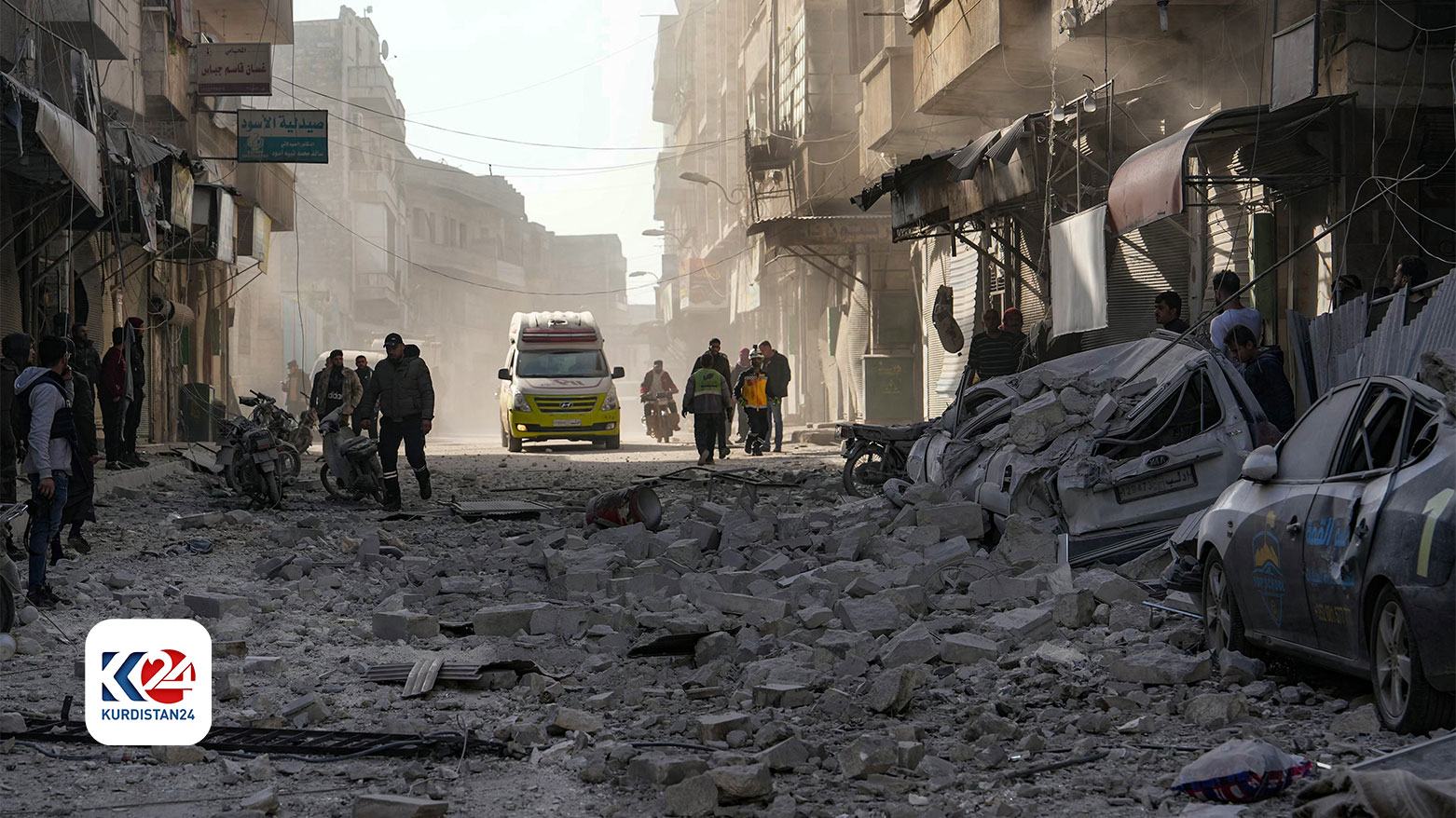UN urges immediate ceasefire in Syria
The message coming from the UN is basically ‘de-escalation’. However, the fact of the matter is how could we convince the conflicting parties in Syria to seek de-escalation amid the heat of hostilities?

Dec. 2, 2024
ERBIL (Kurdistan24) – On Sunday, the UN Resident Coordinator and Humanitarian Coordinator for Syria Adam Abdelmoula issued a statement regarding the recent escalation of hostilities in Northern Syria and Aleppo, urging to “immediately cease hostilities and prioritize the protection of civilians.”
The statement noted that the recent unfolding events on Nov. 27 in Aleppo have resulted in “tragic loss of innocent civilian lives, including women and children, damage to civilian infrastructure and the suspension of critical services.”
Abdelmoula also underscored the gravity of the situation by reminding that conflicts and escalation of hostilities could only force countless people to flee from their homes, “many of whom have already endured the trauma of displacement,” emphasizing that hostilities would only bring about more pain to the Syrian people.
He urged all parties to consider giving dialogue an opportunity to resolve the tensions and hostilities.
The UN Resident Coordinator and Humanitarian Coordinator for Syria described the Syrian conflict as one of the world’s “most severe humanitarian crises”.
With the conflicts in the region, in Gaza, Lebanon, and now Syria, causing more people to be displaced, Abdelmoula stressed that the recent hostilities could exacerbate an already exacerbated humanitarian situation.
He also pointed to the fact that conflicts force people to abandon their homes and seek refuge in other countries, warning that such situations could lead to another influx of migration.
Abdelmoula also stressed that the UN and the humanitarian community will remain committed to delivering assistance to the affected communities.
Also on Sunday, the Special Envoy of the United Nations Secretary-General for Syria, Geir Pedersen, issued a statement regarding the recent unfolding events in Syria, noting the territories gained by Hayat Tahrir al-Sham and pro-government airstrike.
“In a country torn by nearly 14 years of war and conflict, the latest developments pose severe risks to civilians and have serious implications for regional and international peace and security,” Pedersen stated.
Pedersen sees the most essential step for the conflicting parties, at the moment, to urgently "uphold their obligations under international law to protect civilians and civilian infrastructure.”
The message coming from the UN is basically ‘de-escalation’.
However, the fact of the matter is how could we convince the conflicting parties in Syria to seek de-escalation amid the heat of hostilities?
Pedersen believes that what we see today in Syria is the outcome of what he calls a “collective failure” to bring about a “genuine political process to implement Security Council resolution 2254 (2015).”
Resolution 2254 (2015) was a road map to peace that endorsed talks between the pro-government forces and opposition groups, as well as a nationwide ceasefire.
Syrian conflict resurfaced again in the past few days which witnessed opposition forces, led by Hayat Tahrir al-Sham (HTS) and its allies, quickly control Syria’s second-largest city of Aleppo in fantastic fashion.
The fate of the city remains to be decided.
Ever since the recent takeover, the Syrian Defense Ministry and Syrian Army have repeatedly stated that they are preparing for a counter-offensive to retake the lost territories.